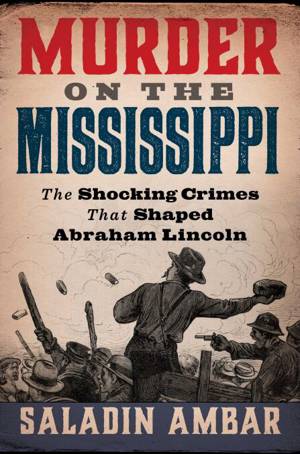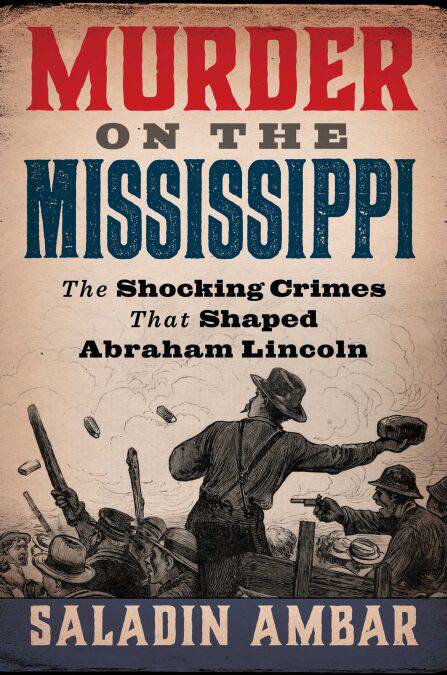
- Afhalen na 1 uur in een winkel met voorraad
- Gratis thuislevering in België vanaf € 30
- Ruim aanbod met 7 miljoen producten
- Afhalen na 1 uur in een winkel met voorraad
- Gratis thuislevering in België vanaf € 30
- Ruim aanbod met 7 miljoen producten
Zoeken
Murder on the Mississippi E-BOOK
The Shocking Crimes That Shaped Abraham Lincoln
Saladin Ambar
E-book | Engels
€ 22,36
+ 22 punten
Uitvoering
Omschrijving
Murder, mob rule, and the making of Abraham Lincoln—the story of three racially motivated murders in Mississippi River towns from 1835 to 1838 that inspired the speech that put Lincoln on the national map—the Lyceum Address.
Lynched: five white gamblers suspected of aiding a slave insurrection in Vicksburg, Mississippi.
Burned Alive: a Black man implicated in the death of a constable in St. Louis, Missouri.
Gunned Down: a white abolitionist in Alton, Illinois.
These weren’t just acts of mob violence—they were warnings of a nation on the edge of collapse.
In Murder on the Mississippi, award-winning historian Saladin Ambar unearths the horrors that shaped a young Abraham Lincoln’s worldview, pushing him to find his political voice in one of the earliest and most pivotal speeches of his career. Confronted by lawlessness, racial terror, and his own inner demons, Lincoln’s battle was political and deeply personal.
Amid the string of murders on the American frontier, Lincoln faced the loss of his first love—and a descent into suicidal despair. Yet from this darkness, he emerged with a renewed purpose, one that would define his leadership in the fight for democracy, human freedom, and the rule of law.
From the flames of mob violence rose a young Lincoln, forged in fire and soon to contend with a nation at war with itself.
Lynched: five white gamblers suspected of aiding a slave insurrection in Vicksburg, Mississippi.
Burned Alive: a Black man implicated in the death of a constable in St. Louis, Missouri.
Gunned Down: a white abolitionist in Alton, Illinois.
These weren’t just acts of mob violence—they were warnings of a nation on the edge of collapse.
In Murder on the Mississippi, award-winning historian Saladin Ambar unearths the horrors that shaped a young Abraham Lincoln’s worldview, pushing him to find his political voice in one of the earliest and most pivotal speeches of his career. Confronted by lawlessness, racial terror, and his own inner demons, Lincoln’s battle was political and deeply personal.
Amid the string of murders on the American frontier, Lincoln faced the loss of his first love—and a descent into suicidal despair. Yet from this darkness, he emerged with a renewed purpose, one that would define his leadership in the fight for democracy, human freedom, and the rule of law.
From the flames of mob violence rose a young Lincoln, forged in fire and soon to contend with a nation at war with itself.
Specificaties
Betrokkenen
- Auteur(s):
- Uitgeverij:
Inhoud
- Aantal bladzijden:
- 288
- Taal:
- Engels
Eigenschappen
- Productcode (EAN):
- 9798895150207
- Verschijningsdatum:
- 6/10/2025
- Uitvoering:
- E-book
- Beveiligd met:
- Adobe DRM
- Formaat:
- ePub

Alleen bij Standaard Boekhandel
+ 22 punten op je klantenkaart van Standaard Boekhandel
Beoordelingen
We publiceren alleen reviews die voldoen aan de voorwaarden voor reviews. Bekijk onze voorwaarden voor reviews.







